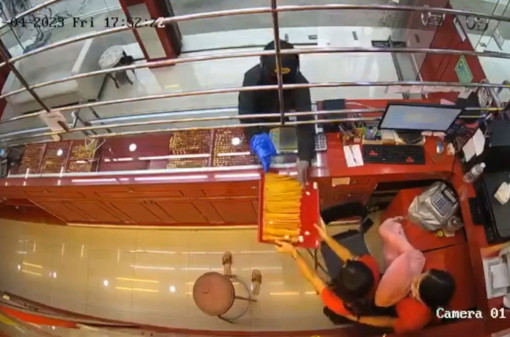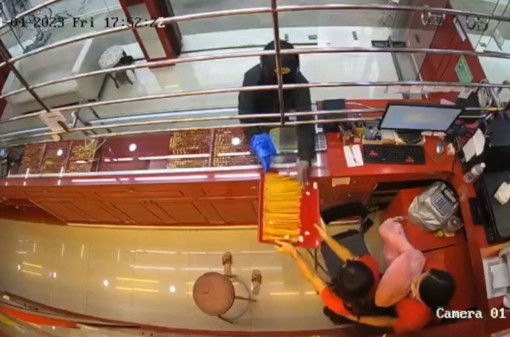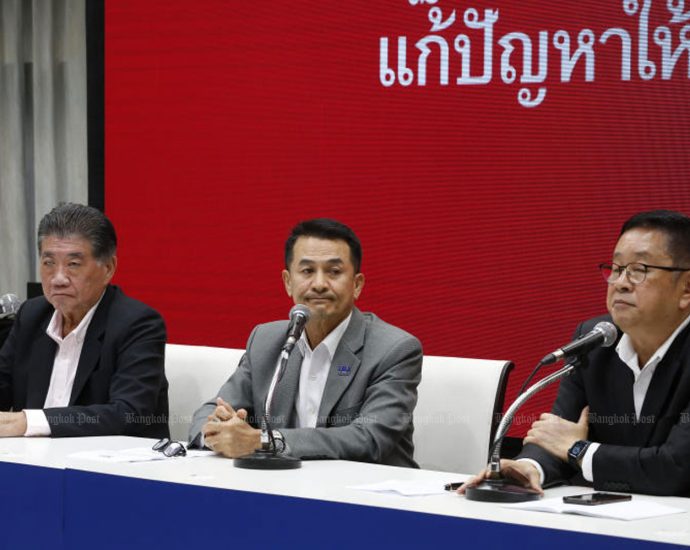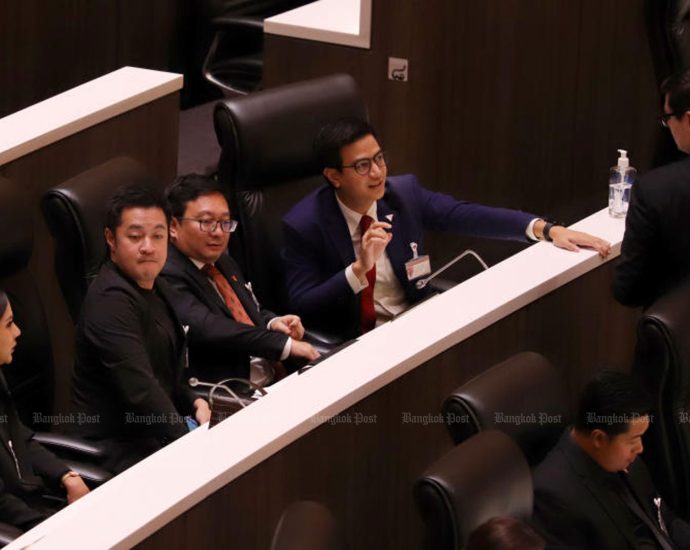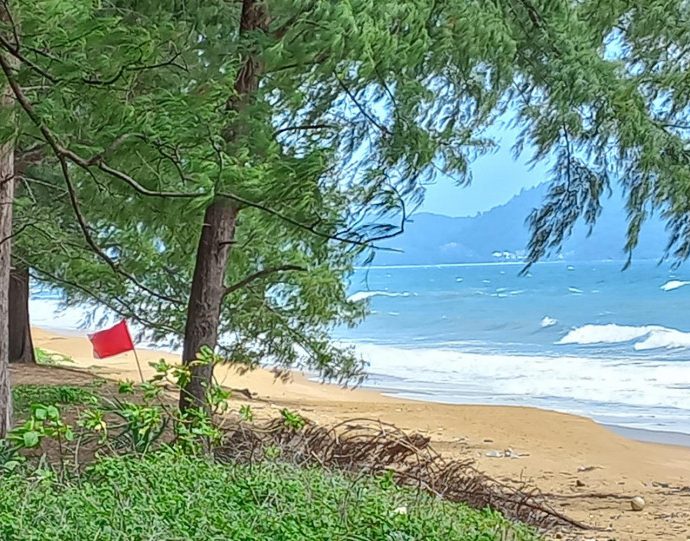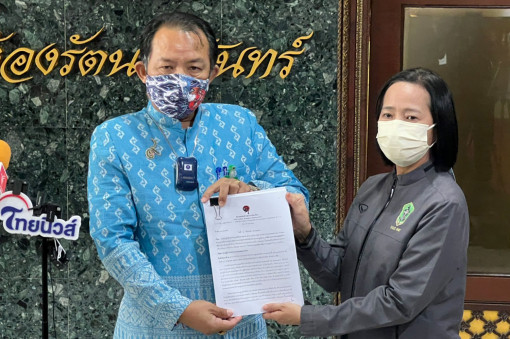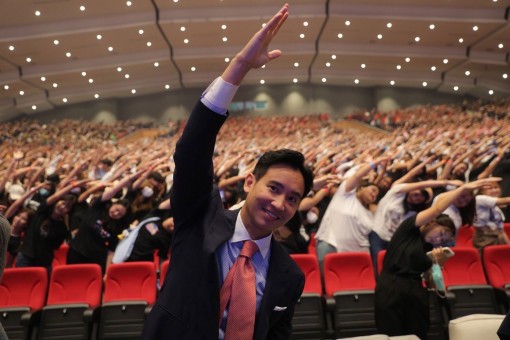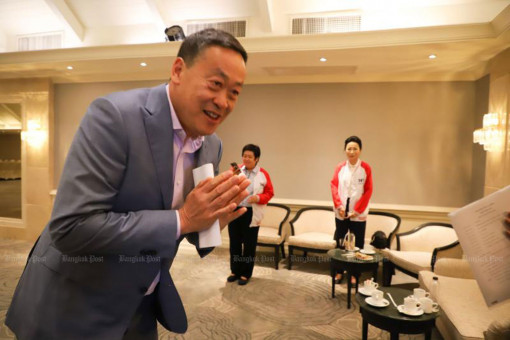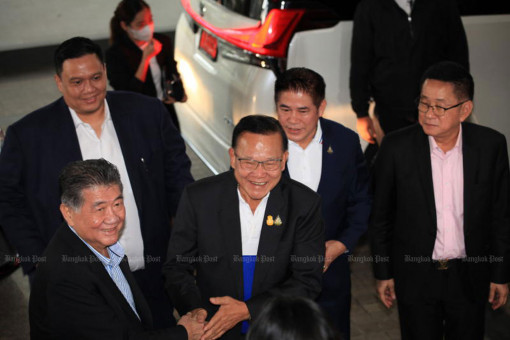Woman robs gold shop of 37 necklaces
PUBLISHED : 5 Aug 2023 at 12:37

SAMUT PRAKAN: A hunt is underway for a middle-aged woman who made off with 37 gold necklaces in a gold shop robbery in Bang Sao Thong district on Friday evening.
The woman parked her motorcycle in front of Kittima gold shop at Muang Mai Bang Phli housing community at 5.52 pm on Friday as shown in a security camera of the shop.
Wearing a full-face crash helmet, a dark green jacket and black trousers, the woman entered the shop with her hand carrying something wrapped in a blue plastic bag. She suddenly pointed the object, which turned out to be a gun, at staff members to force them to hand her trays of gold ornaments. The robber immediately swept 37 necklaces, each weighing 50-satang weight of gold, and fled on her motorcycle.
Patrol police arrived at the scene minutes after staff pressed an alarm button.
According to a police investigation, the woman was found to be the same person who tried to snatch a gold necklace from a resident at Eua Arthon housing estate in Bang Chalong of Bang Phli district two hours before the gold shop robbery. However, she failed to get the necklace before robbing the gold shop, about 6 kilometres away from the first spot.
Pol Maj Gen Panlop Araemlar, commander of Samut Prakan police, ordered officers to hunt down the robber.

Police inspect the gold shop in Bang Sao Thong district, Samut Prakan following the gold shop robbery. (Photo: Sutthiwit Chayutworakan)

